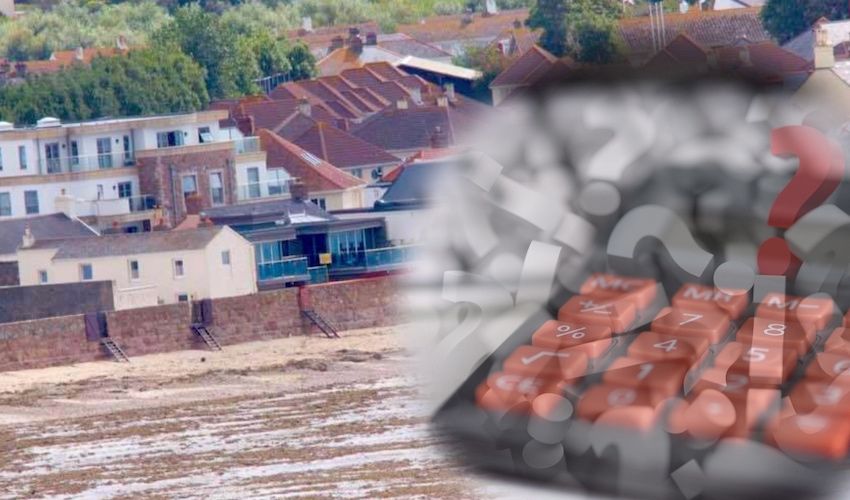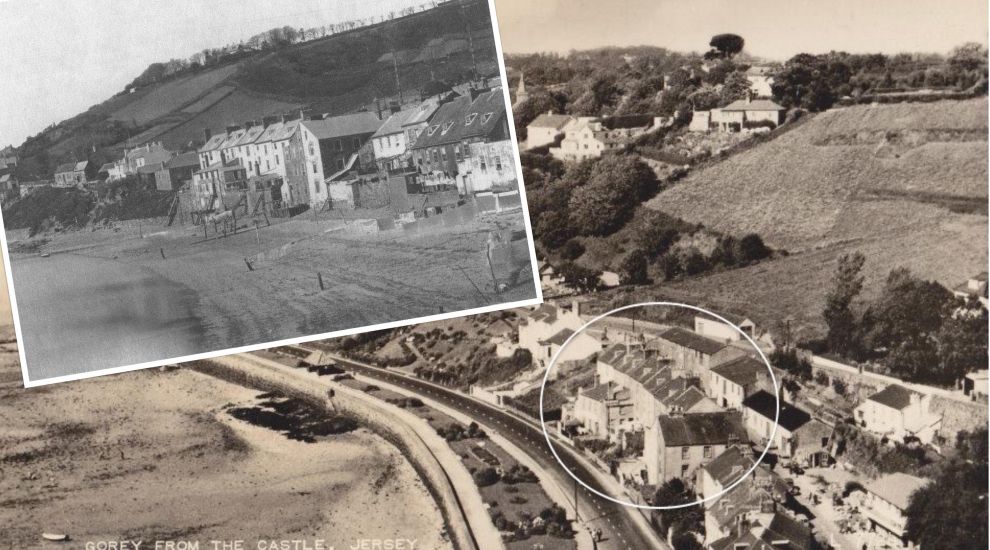


The government does not know how much taxpayer cash it has spent pursuing and fining coastal homeowners for alleged encroachment on the foreshore, Express has learned.
The vague strip of land – defined as sitting between low and high tide - was gifted to the Public by the Queen in 2015.
Since then, islanders with properties fully or partially sitting on the foreshore have been forced to pay compensation in the tens of thousands to the government – even if the encroachments weren’t their fault.
There are also disputes over where exactly the ‘high-tide’ mark should be drawn, as this has changed over time.
The government argues their requests for compensation are a worthwhile pursuit, as the land is rightfully theirs, but questions have since been raised over whether there’s a genuine financial benefit.
Grilled during a recent Scrutiny hearing, Infrastructure Minister Deputy Kevin Lewis said he was “not sure of the money situation”.
Scrutineer Deputy Kirsten Morel suggested the government had paid more than it received in dealing with those transactions and was therefore in “negative territory”. The Minister admitted it was a “possibility”.
“I wouldn’t like to hazard a guess, but there is a principle to uphold,” he added.

Pictured: Deputy Lewis said he was “not sure of the money situation" regarding the foreshore policy.
Express asked the government’s press office to clarify how much has been spent pursuing Alan Luce and Julian Mallinson - the first two islanders to receive 'foreshore fines', who have since led a public fight against them - but they said they were “not able to determine the costs involved” due to the number of officers across various Government departments who had been working on the case.
“It is worth noting that this is not a simple transactional activity,” a spokesperson for the Growth, Housing and Environment (GHE) Department said.
GHE Officials were equally unable to confirm how many officers, or which departments, had been involved.
“It is not possible to know precisely which departments and officers have been involved in the issue of foreshore encroachment generally because there are many aspects to it and because officers will liaise with one another in order to get information or complete tasks,” the spokesperson said.
Pictured: The Government said they were not able to determine the costs involved”.
However, they noted that Jersey Property Holdings and the Law Officers' Department had been the main departments involved in the case against Mr Luce and Mr Mallinson.
“The transactions have been part of the workload of three main officers from Jersey Property Holdings assisted as necessary by the Law Officers Department. Liaison with other Government employees would have also occurred as necessary,” the spokesperson added.
“This is not to say that they have been working full-time on the case, but as part of their overall workload.”
Commenting on the government’s inability to add up the bill, Deputy Morel said it had “a poor record of allocating costs properly”.
Deputy Morel, who himself enquired about the costs but received a similar response to Express, added that, when discussing a recent proposition on rented property, his panel had been given “questionable costs” by the department.
“We could not quite get to the bottom of what these costs covered,” Deputy Morel said.

Pictured: Deputy Kirsten Morel, who sits on the Environment, Housing and Infrastructure Scrutiny Panel.
The St. Lawrence Deputy said the government’s inability to price up costs was concerning since islanders sometimes have to pay for services on the basis of cost recovery.
“They do not know what costs they need to recover, which means we could often be paying more than we should be.
“Take the new vehicle standards: if a centralised service is established, the costs will need to be recovered. But if they cannot say what the costs are, there is every chance we will be paying more than necessary.”
“Departments tend to over-estimate what services cost,” Deputy Morel added. “We need to look at systems no matter how complex they are otherwise, islanders will never know if they are paying the right price.
“The government should always be aware of the costs and benefits for anything it is undertaking, especially if it is defending it in tribunals."

Pictured: The government are not considering a single date as the baseline from which to take the foreshore.
In addition, Deputy Morel said the foreshore policy was “deeply flawed” one, describing it as “a principle resting on a foundation of sand”, not only because it had “cost more than it brought in” but also because the government should have waited to establish where the foreshore was before looking at what properties were encroaching it.
While a review of the current foreshore policy is yet to be published – it has been delayed until April - the government has revealed it is not looking at one single map to determine where the high and low water mark lie.
In reply to a request made under the Freedom of Information law which asked what date was being used as “as a baseline from which to take the Foreshore boundary”, the government said: “No single date is being used as a base line from which to take the boundary because of the evolving nature of the foreshore and the fact that construction along it occurred at different times.”
Earlier this year, Deputy Carolyn Labey launched a bid to bin the government’s controversial practice with an urgent ‘cease and desist’ order.
It will face a States Assembly vote on 24 March.
Comments
Comments on this story express the views of the commentator only, not Bailiwick Publishing. We are unable to guarantee the accuracy of any of those comments.